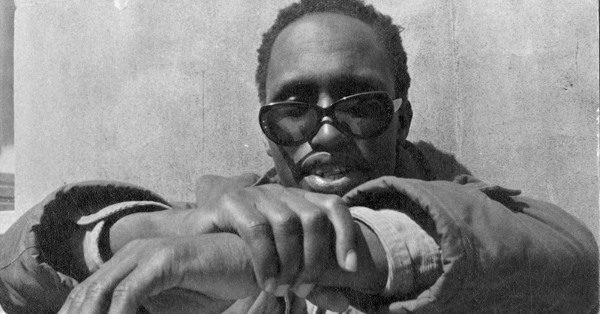A radio debate flares up a crossfire of narratives regarding the place of religion in public life.
Militant atheist Richard Dawkins is hurling his usual invective at everything divine.
The secularist figurehead declares on the BBC Radio 4 programme that Christians are basically unintelligent.
They are so not up to it, he claims, that the average Christian cannot even name the four gospels.
Giles Fraser, the vicar on the other side of the table, ironically volunteers a compliment.
One to the tenor that Dawkins is himself an erudite professor.
But the vicar quickly follows up with a question, as if to invite the Darwinian evolutionist to stand up to the compliment.
“Richard, if I said to you what is the full title of The Origin of Species, I’m sure you could tell me that,” says Fraser.
“Yes, I could,” the belligerent professor affirms.
“Go on then,” challenges Fraser.
“Uh… with, oh my God, ‘On the Origin of Species’… There is a sub-title with respect to the preservation of favoured races in the struggle for life,” the militant atheist invokes God to remember the title of his favourite book.
Predictably, the next morning’s newspaper headlines hint on what a bad week it has been for atheists.
Recapping the incident, a few months later, philosopher Ravi Zacharias makes a fascinating remark.
“The ultimate proof for the sovereignty and omnipotence of God is that it takes an atheist who doesn’t believe in Him, to call on Him to remind him of the title of the book that helped him deny Him,” Zacharias observes.
The unwieldy mouthful in question is On the Origin of Species by Means of Natural Selection, or the Preservation of Favoured Races in the Struggle for Life.
By itself, the title explains why Darwinism has been invoked to legitimise a range of atrocities including racism, slavery, colonialism, genocide, mandatory sterilisation and targeted abortion.
Darwin is credited with such overtly racist propaganda as the claim, in The Descent of Man, that the European stands at the summit of civilisation, poised to wipe out its “former savage progenitors.”
All the same, Dawkins credits the author of Origin of Species for showing us “everything we know about life.”
The book is Dawkins’s apparent basis for abortionist propaganda notably the claim: “With respect to those meanings of human which are relevant to abortion, a foetus is less human than an adult pig.”
Dawkins sometime in 2014 incentivised the pro-choice death machine with a sensational discovery that it is immoral to allow unborn babies with Down’s syndrome to live.
“Abort it and try again. It would be immoral to bring it into the world if you have the choice,” he told a would-be mother querying a possible Down’s syndrome pregnancy.
The God Delusion author has earned himself the papacy of atheism for his array of religion-bashing titles and talk circuit.
He is not alone.
Sam Harris, Christopher Hitchens and Daniel Dennet are among the prominent anti-faith crusaders.
Their inclination to extremism is legendary. Harris once said given the choice to eliminate either rape or religion he would do away with religion.
Dawkins told an Al-Jazeera’s Mehdi Hasan that Catholic indoctrination is worse than sexual abuse. The basis? One letter from an American woman.
A public showdown of worldviews is streaming.
While conscience is a private domain, its public character has been evident through the ages.
To determine the questions of life, meaning and the civic space, opinion leaders have often invoked or contested the existence of God with varying degrees of eloquence.
But eloquence is not as equal to the problem as truth is. How far honesty, being the receptacle for truth, is present in this crusade is, however, questionable.
Much of the iconoclastic effort borders on sensationalised rhetoric.
Dawkins writes the God of the Old Testament off as a “petty, unjust, unforgiving control freak; a vindictive, bloodthirsty ethnic cleanser; a misogynistic, homophobic, racist, infanticidal, genocidal, filicidal, pestilential, megalomaniacal, sadomasochistic, capriciously malevolent bully.”
One has to wonder whether secularism is about disbelief or rather hate for the divine.
Whatever the case, hurling such polemical abstractions in the name of science is a rather novel discipline, one that cannot be fitted within any one of the great traditions of knowledge.
For David Berlinski, author of The Devil’s Delusion, “confident assertions by scientists that in the privacy of their chambers they have demonstrated that God does not exist have nothing to do with science, and even less to do with God’s existence.”
Berlinski objects to the assumption that “something answers to the name of science” as a ploy has been used to qualify prejudice into public propaganda.
C.S Lewis observes: “A man can no more diminish God’s glory by refusing to worship Him than a lunatic can put out the sun by scribbling the word ‘darkness’ on the walls of his cell.”
Could it be that Dawkins and his peers are on a mission equally futile?
In branding religion evil, belief irrational and God non-existent, the iconoclasts are aiming for the very foundations of the world.
Concession to or denial of the existence of God as the intelligent first cause and ultimate moral authority of the universe has, either way, far-reaching implications.
Secularists often point to the dark episodes of Catholic history as a generic touchstone for determining that religion, specifically Christianity, is evil.
But as Alister McGrath points out in The Dawkins Delusion, violence is not a necessary feature of religion.
Laying aside the erroneous assumption that all religions are the same, he points out that Jesus Christ never advocated violence and was the object, not the agent, of violence.
Characteristically, the literary atheists see only what is convenient for their agenda, even where essence is contravened.
Cardinal Pell said that the creation account, together with Adam and Eve, is myth not history, a position ratified by the pope in his much-publicised evolution remarks last year.
Such a position supplants scriptural authority with institutional authority, as the case was during the Inquisition and the Crusades.
What obtains on such a premise cannot be assumed to be representative of Christianity. Dostoyevsky’s Grand Inquisitor attests as much.
To turn the tables, Berlinski points out that the twentieth century which was not an age of faith tames previous violence in every space.
Stalin, Hitler, Mao, Pol Pot and Lenin renounced the claims of religion on public life, deified themselves instead and oversaw an appalling body count.
Dawkins and his pro-choice colleagues are volunteering no mean quota. As at 2008, the Guttmacher Institute placed the feticide toll in the U.S at more than 53 million since the Roe vs. Wade decision.
Berlinski asks pertinent questions for secularist science: “Just who has imposed on the suffering human race poison gas, barbed wire, high explosives, experiments in eugenics, the formula for Zyklon B, heavy artillery, pseudo-scientific justifications for mass murder, cluster bombs, attack submarines, napalm, inter-continental ballistic missiles, military space platforms, and nuclear weapons?”
Towards the amplification of secularism, it has been necessary not only to propagate the myth that science has disproven God but also to create an alternative religion out of science.
McGrath observes how, to supplant religion with counter-religion, Dawkins has gone lengths to conjure up pseudo-scientific concepts.
Brain viruses and memes, alleged hypnotic agencies for transmitting religion, are pertinent examples.
Dawkins ignores the fact that millions adopt religion as a result conscious inquiry or dissatisfaction with other worldviews as opposed to random hypnotism.
Secularism eliminates ethical frames of reference with the supposition that humans are merely vehicles of selfish genes out to secure their interests.
Bar design, purpose, morality or the love that acknowledges the humanity of others and yields to fraternal service, the world is a dark prison. Secularism is out to accomplish as much.
Science is not a substitute but an affirmation of God’s existence. Nature and inspiration are corresponding segments in the dual revelation of God.
Lennox puts a wet blanket on the condescending view often repeated by Dawkins that science is based on evidence while faith thrives on the lack of evidence.
Ironically, Dawkins has made a career out of criticising his own erroneous interpretation of Christianity. Lennox makes an important point in response:
“Where is the evidence that religious faith is not based on evidence? Mainstream Christianity will insist that faith and evidence are inseparable. Indeed, faith is a response to evidence, not a rejoicing in the absence of evidence,” Lennox points out.
“The apostle Paul says what many pioneers of modern science believed, that nature itself is part of the evidence for the existence of God, ‘Since the creation of the world, God’s invisible qualities – his eternal power and divine nature — have been clearly seen, being understood from what has been made. So that men are without an excuse.’
“Dawkins’ definition of faith turns out to be the direct opposite of the biblical one. Curious that he does not seem to be aware of the discrepancy,” he says.
Zacharias captures the logical implications of atheism with his characteristically trenchant approach: “To sustain the belief that there is no God, atheism has to demonstrate infinite knowledge, which is tantamount to saying, ‘I have infinite knowledge that there is no being in existence with infinite knowledge.’”
Thankfully, a Christian war cabinet is at work not to spill blood but ink for the defence of the gospel, in a time of unprecedented attacks on the faith from various angles.
The intellectual defence of the faith, known as apologetics, is almost as old as Christianity itself. Paul’s trenchant theology and his Areopagus talk are classic apologetics.
In the early centuries of Christianity, apologists such as Origen, Augustine, Tertullian and Athenagoras had to contend with political attacks, pagan objections and heresy.
Each age had its unique challenges which the faith had to navigate. There has risen, in the lapse of centuries, intellectual sentinels of the faith such as Pascal, Jonathan Edwards, CH Spurgeon and CS Lewis who works still inspire contemporary apologists.
Today, the evangelical intelligentsia is drawn from different professions such as history, science, philosophy and journalism to play different keys for the same symphony.
Noted apologists include Lennox, Zacharias, biologist McGrath, Carl Wieland, journalist Lee Strobel and open-air preacher Ray Comfort.
They are in touch with the pulse of culture, taking a stand for the Bible against attacks of various motivations, and engaged with the big questions.
Drawn from the Greek word for defence, “apologia,” apologetics is a biblical mandate. Jude says to contend earnestly for the faith (1:3), Paul says he is set for the defence of the gospel (Philippians 1: 17) and Peter urges in his first letter: “always be prepared to make a defence to anyone who calls you to account for the hope that is in you” (3:15).
It is necessary to be able to answer clearly and confidently questions such as: Does God exist? How did the universe come about? Does science contradict the Bible? Who defines morality? Is there eternity?
Apologists do not assume a middle wall between believers and sceptics so as to assign such questions to the other side but answer them to clarify the case for the faith and to demonstrate its intellectual consistency.
In this day, when Christianity not only seems to be the bête noire of a group of writers claiming monopoly over science and education, but is also having its moral agency contested in the public square, it is increasingly important to have intellectual sentinels set for the defence of the faith.












